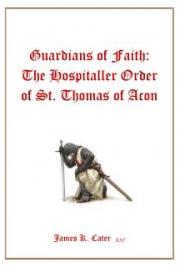Chapter 73—The Last Years of David
This chapter is based on 2 Samuel 24; 1 Kings 1; 1 Chronicles 21; 28; 29.
The overthrow of Absalom did not at once bring peace to the kingdom. So large a part of the nation had joined in revolt that David would not return to his capital and resume his authority without an invitation from the tribes. In the confusion that followed Absalom’s defeat there was no prompt and decided action to recall the king, and when at last Judah undertook to bring back David, the jealousy of the other tribes was roused, and a counter- revolution followed. This, however, was speedily quelled, and peace returned to Israel. {PP 746.1}
The history of David affords one of the most impressive testimonies ever given to the dangers that threaten the soul from power and riches and worldly honor—those things that are most eagerly desired among men. Few have ever passed through an experience better adapted to prepare them for enduring such a test. David’s early life as a shepherd, with its lessons of humility, of patient toil, and of tender care for his flocks; the communion with nature in the solitude of the hills, developing his genius for music and poetry, and directing his thoughts to the Creator; the long discipline of his wilderness life, calling into exercise courage, fortitude, patience, and faith in God, had been appointed by the Lord as a preparation for the throne of Israel. David had enjoyed precious experiences of the love of God, and had been richly endowed with His Spirit; in the history of Saul he had seen the utter worthlessness of mere human wisdom. And yet worldly success and honor so weakened the character of David that he was repeatedly overcome by the tempter. {PP 746.2}
Intercourse with heathen peoples led to a desire to follow their national customs and kindled ambition for worldly greatness. As the people of Jehovah, Israel was to be honored; but as pride and self-confidence increased, the Israelites were not content with this pre- eminence. They cared rather for their standing among other nations. This spirit could not fail to invite temptation. With a view to extending his conquests among foreign nations, David determined to increase his army by requiring military service from all who were of proper age. To effect this, it became necessary to take a census of the population. It was pride and ambition that prompted this action of the king. The numbering of the people would show the contrast between the weakness of the kingdom when David ascended the throne and its strength and prosperity under his rule. This would tend still further to foster the already too great self-confidence of both king and people. The Scripture says, “Satan stood up against Israel, and provoked David to number Israel.” The prosperity of Israel under David had been due to the blessing of God rather than to the ability of her king or the strength of her armies. But the increasing of the military resources of the kingdom would give the impression to surrounding nations that Israel’s trust was in her armies, and not in the power of Jehovah. {PP 746.3}
Though the people of Israel were proud of their national greatness, they did not look with favor upon David’s plan for so greatly extending the military service. The proposed enrollment caused much dissatisfaction; consequently it was thought necessary to employ the military officers in place of the priests and magistrates, who had formerly taken the census. The object of the undertaking was directly contrary to the principles of a theocracy. Even Joab remonstrated, unscrupulous as he had heretofore shown himself. He said, “The Lord make His people a hundred times so many more as they be: but, my lord the king, are they not all my lord’s servants? why then doth my lord require this thing? why will he be a cause of trespass to Israel? Nevertheless the king’s word prevailed against Joab. Wherefore Joab departed, and went throughout all Israel, and came to Jerusalem.” The numbering was not finished when David was convicted of his sin. Self-condemned, he “said unto God, I have sinned greatly, because I have done this thing: but now, I beseech Thee, do away the iniquity of Thy servant; for I have done very foolishly.” The next morning a message was brought to David by the prophet Gad: “Thus saith the Lord, Choose thee either three years’ famine; or three months to be destroyed before thy foes, while that the sword of thine enemies overtaketh thee; or else three days the sword of the Lord, even the pestilence, in the land, and the angel of the Lord destroying throughout all the coasts of Israel. Now therefore,” said the prophet, “advise thyself what word I shall bring again to Him that sent me.” {PP 747.1}
The king’s answer was, “I am in a great strait: let us fall now into the hand of the Lord; for His mercies are great: and let me not fall into the hand of man.” {PP 748.1}
The land was smitten with pestilence, which destroyed seventy thousand in Israel. The scourge had not yet entered the capital, when “David lifted up his eyes, and saw the angel of the Lord stand between the earth and the heaven, having a drawn sword in his hand stretched out over Jerusalem. Then David and the elders of Israel, who were clothed in sackcloth, fell upon their faces.” The king pleaded with God in behalf of Israel: “Is it not I that commanded the people to be numbered? even I it is that have sinned and done evil indeed; but as for these sheep, what have they done? let Thine hand, I pray Thee, O Lord my God, be on me, and on my father’s house; but not on Thy people, that they should be plagued.” {PP 748.2}
The taking of the census had caused disaffection among the people; yet they had themselves cherished the same sins that prompted David’s action. As the Lord through Absalom’s sin visited judgment upon David, so through David’s error he punished the sins of Israel. {PP 748.3}
The destroying angel had stayed his course outside Jerusalem. He stood upon Mount Moriah, “in the threshing floor of Ornan the Jebusite.” Directed by the prophet, David went to the mountain, and there built an altar to the Lord, “and offered burnt offerings and peace offerings, and called upon the Lord; and He answered him from heaven by fire upon the altar of burnt offering.” “So the Lord was entreated for the land, and the plague was stayed from Israel.” {PP 748.4}
The spot upon which the altar was erected, henceforth ever to be regarded as holy ground, was tendered to the king by Ornan as a gift. But the king declined thus to receive it. “I will verily buy it for the full price,” he said; “for I will not take that which is thine for the Lord, nor offer burnt offerings without cost. So David gave to Ornan for the place six hundred shekels of gold by weight.” This spot, memorable as the place where Abraham had built the altar to offer up his son, and now hallowed by this great deliverance, was afterward chosen as the site of the temple erected by Solomon. {PP 748.5}
Still another shadow was to gather over the last years of David. He had reached the age of threescore and ten. The hardships and exposures of his early wanderings, his many wars, the cares and afflictions of his later years, had sapped the fountain of life. Though his mind retained its clearness and strength, feebleness and age, with their desire for seclusion, prevented a quick apprehension of what was passing in the kingdom, and again rebellion sprang up in the very shadow of the throne. Again the fruit of David’s parental indulgence was manifest. The one who now aspired to the throne was Adonijah, “a very goodly man” in person and bearing, but unprincipled and reckless. In his youth he had been subjected to but little restraint; for “his father had not displeased him at any time in saying, Why hast thou done so?” He now rebelled against the authority of God, who had appointed Solomon to the throne. Both by natural endowments and religious character Solomon was better qualified than his elder brother to become ruler of Israel; yet although the choice of God had been clearly indicated, Adonijah did not fail to find sympathizers. Joab, though guilty of many crimes, had heretofore been loyal to the throne; but he now joined the conspiracy against Solomon, as did also Abiathar the priest. {PP 749.1}
The rebellion was ripe; the conspirators had assembled at a great feast just without the city to proclaim Adonijah king, when their plans were thwarted by the prompt action of a few faithful persons, chief among whom were Zadok the priest, Nathan the prophet, and Bathsheba the mother of Solomon. They represented the state of affairs to the king, reminding him of the divine direction that Solomon should succeed to the throne. David at once abdicated in favor of Solomon, who was immediately anointed and proclaimed king. The conspiracy was crushed. Its chief actors had incurred the penalty of death. Abiathar’s life was spared, out of respect to his office and his former fidelity to David; but he was degraded from the office of high priest, which passed to the line of Zadok. Joab and Adonijah were spared for the time, but after the death of David they suffered the penalty of their crime. The execution of the sentence upon the son of David completed the fourfold judgment that testified to God’s abhorrence of the father’s sin. {PP 749.2}
From the very opening of David’s reign one of his most cherished plans had been that of erecting a temple to the Lord. Though he had not been permitted to execute this design, he had manifested no less zeal and earnestness in its behalf. He had provided an abundance of the most costly material—gold, silver, onyx stones, and stones of divers colors; marble, and the most precious woods. And now these valuable treasures that he had collected must be committed to others; for other hands must build the house for the ark, the symbol of God’s presence. {PP 750.1}
Seeing that his end was near, the king summoned the princes of Israel, with representative men from all parts of the kingdom, to receive this legacy in trust. He desired to commit to them his dying charge and secure their concurrence and support in the great work to be accomplished. Because of his physical weakness, it had not been expected that he would attend to this transfer in person; but the inspiration of God came upon him, and with more than his wonted fervor and power, he was able, for the last time, to address his people. He told them of his own desire to build the temple, and of the Lord’s command that the work should be committed to Solomon his son. The divine assurance was, “Solomon thy son, he shall build My house and My courts; for I have chosen him to be My son, and I will be his Father. Moreover I will establish his kingdom forever, if he be constant to do My commandments and My judgments, as at this day.” “Now therefore,” David said, “in the sight of all Israel the congregation of the Lord, and in the audience of our God, keep and seek for all the commandments of the Lord your God: that ye may possess this good land, and leave it for an inheritance for your children after you forever.” {PP 750.2}
David had learned by his own experience how hard is the path of him who departs from God. He had felt the condemnation of the broken law, and had reaped the fruits of transgression; and his whole soul was moved with solicitude that the leaders of Israel should be true to God, and that Solomon should obey God’s law, shunning the sins that had weakened his father’s authority, embittered his life, and dishonored God. David knew that it would require humility of heart, a constant trust in God, and unceasing watchfulness to withstand the temptations that would surely beset Solomon in his exalted station; for such prominent characters are a special mark for the shafts of Satan. Turning to his son, already acknowledged as his successor on the throne, David said: “And thou, Solomon my son, know thou the God of thy father, and serve Him with a perfect heart and with a willing mind: for the Lord searcheth all hearts, and understandeth all the imaginations of the thoughts: if thou seek Him, He will be found of thee; but if thou forsake Him, He will cast thee off forever. Take heed now; for the Lord hath chosen thee to build a house for the sanctuary: be strong, and do it.” {PP 750.3}
David gave Solomon minute directions for building the temple, with patterns of every part, and of all its instruments of service, as had been revealed to him by divine inspiration. Solomon was still young, and shrank from the weighty responsibilities that would devolve upon him in the erection of the temple and in the government of God’s people. David said to his son, “Be strong and of good courage, and do it: fear not, nor be dismayed, for the Lord God, even my God, will be with thee; He will not fail thee, nor forsake thee.” {PP 751.1}
Again David appealed to the congregation: “Solomon my son, whom alone God hath chosen, is yet young and tender, and the work is great: for the palace is not for man, but for the Lord God.” He said, “I have prepared with all my might for the house of my God,” and he went on to enumerate the materials he had gathered. More than this, he said, “I have set my affection to the house of my God, I have of mine own proper good, of gold and silver, which I have given to the house of my God, over and above all that I have prepared for the holy house, even three thousand talents of gold, of the gold of Ophir, and seven thousand talents of refined silver, to overlay the walls of the houses withal.” “Who then,” he asked of the assembled multitude that had brought their liberal gifts—“who then is willing to consecrate his service this day unto the Lord?” {PP 751.2}
There was a ready response from the assembly. “The chief of the fathers and princes of the tribes of Israel, and the captains of thousands and of hundreds, with the rulers of the king’s work, offered willingly, and gave, for the service of the house of God, of gold five thousand talents and ten thousand drams, and of silver ten thousand talents, and of brass eighteen thousand talents, and one hundred thousand talents of iron. And they with whom precious stones were found gave them to the treasure of the house of the Lord. Then the people rejoiced, for that they offered willingly, because with perfect heart they offered willingly to the Lord: and David the king also rejoiced with great joy. {PP 751.3}
“Wherefore David blessed the Lord before all the congregation: and David said, Blessed be Thou, Lord God of Israel our father, forever and ever. Thine, O Lord, is the greatness, and the power, and the glory, and the victory, and the majesty: for all that is in the heaven and in the earth is Thine; Thine is the kingdom, O Lord, and Thou art exalted as head above all. Both riches and honor come of Thee, and Thou reignest over all; and in Thine hand is power and might; and in Thine hand it is to make great, and to give strength unto all. Now therefore, our God, we thank Thee, and praise Thy glorious name. But who am I, and what is my people, that we should be able to offer so willingly after this sort? for all things come of Thee, and of Thine own have we given Thee. For we are strangers before Thee, and sojourners, as were all our fathers: our days on the earth are as a shadow, and there is none abiding. O Lord our God, all this store that we have prepared to build Thee an house for Thine holy name cometh of Thine hand, and is all Thine own. I know also, my God, that Thou triest the heart, and hast pleasure in uprightness. {PP 752.1}
“As for me, in the uprightness of mine heart I have willingly offered all these things: and now have I seen with joy Thy people, which are present here, to offer willingly unto Thee. O Lord God of Abraham, Isaac and of Israel, our fathers, keep this forever in the imagination of the thoughts of the heart of Thy people, and prepare their heart unto Thee: and give unto Solomon my son a perfect heart, to keep Thy commandments, Thy testimonies, and Thy statutes, and to d







